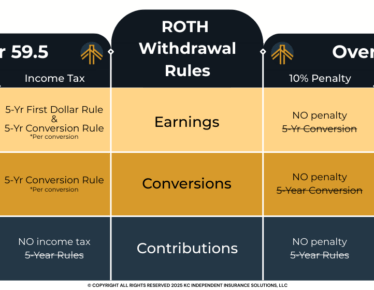“If annuities are so useful, why don’t more people know how they work?”
It’s a good question — and the truth is, annuities are often misunderstood. Even many financial professionals don’t explain them clearly, which leads to much confusion and sometimes, missed opportunities.
We want to clear up that confusion and help you understand when annuities make sense, when they don’t, and how they might (or might not) fit into your retirement strategy.
First: Why All the Confusion?
Annuities aren’t sold like mutual funds or CDs. Banks, investment firms, and Wall Street tend to promote their own products, and annuities are usually offered through insurance companies. Many advisors aren’t trained in them, or aren’t allowed to earn a management fee on them. That means annuities don’t get much attention, and when they do, it’s often the wrong kind.
You may have heard conflicting things:
- “Annuities have no fees.” (Some do.)
- “They protect your principal.” (Some types do, others don’t.)
- “You’ll get guaranteed income.” (Yes, if that’s what the annuity is designed to do.)
So which is it?
Well, like with any financial tool, the answer is: it depends on what you need it for.
Know Your Purpose First
Before we talk about products, we need to clarify your goals. Why are you considering an annuity in the first place? Are you trying to guarantee income for life? Protect your principal? Grow your money tax-deferred? Leave a legacy to your family?
An annuity is not a one-size-fits-all solution. It’s more like picking the right tool for the job. Just like you wouldn’t use a smartphone to do a graphic design project (you’d use a desktop), you shouldn’t use an income annuity when what you need is liquidity or growth.
The Five Main Types of Annuities
Let’s briefly go over the five main types of annuities so you can see which might align with your goals.
- SPIAs and DIAs
Single premium immediate annuities (SPIAs) and deferred income annuities (DIAs) are the “classic” annuities that pay you income in exchange for handing over a lump sum. They’re great if your primary concern is lifetime income, and you’re not worried about accessing the principal. Think of these like pensions or Social Security. They’re reliable, but not flexible — once you give the money to the insurance company, it’s locked in. - MYGAs (Multi-Year Guaranteed Annuities)
Multi-year guaranteed annuities (MYGAs) are similar to CDs, but with tax-deferred growth. You earn a fixed rate for a set number of years, and your principal is protected. These can be a good fit if you want a safe place to park money for 3–7 years without market risk. However, they’re not designed to provide lifetime income. - Variable Annuities
Variable annuities (VAs) are market-based annuities, which means your returns — and your risks — fluctuate with the stock market. Variable annuities can offer upside potential and optional income features. Still, the fees are typically very high, and your principal is not protected. For most people, these are not the best option, especially when you can invest in the market without the added costs. - Fixed Index Annuities (FIAs)
Fixed index annuities (FIAs) offer a middle ground: they give you some growth potential based on the performance of a market index (like the S&P 500), but they also protect your principal from losses. You won’t get all the market’s upside, but you also won’t lose money in a downturn. They can also include income or legacy planning features, often with low or no fees. - Hybrid Pensions (Income-Focused Annuities)
Hybrid pensions are the newest and most versatile category. Hybrid pensions are fixed or variable annuities with income riders attached. In plain English, you can grow your income value over time and choose when to turn it on, much like a self-made pension. What makes them unique is that they allow you to guarantee lifetime income while still maintaining access to your money. That’s rare. Suppose your goal is to replace a pension, cover retirement expenses, or plan for long-term care needs. In that case, this type of annuity might be worth exploring.
What About Taxes and Annuities?
Most annuities grow tax-deferred, whether you use retirement money (like a 401(k) rollover or IRA) or after-tax funds. When you start taking income, you’re generally taxed at ordinary income rates. For non-retirement money, only the gains are taxable — your original investment comes out tax-free.
So, Is an Annuity Right for You?
That depends entirely on your purpose. If you’re concerned about outliving your income, protecting your principal, or managing retirement distributions efficiently, then yes, certain annuities might make sense. But if you’re looking for aggressive growth or total liquidity, there may be better tools for the job.
This is where guidance matters. The wrong annuity, used the wrong way, can tie up your money and cause frustration. But the right annuity — aligned with your goals — can offer peace of mind and guaranteed income that lasts a lifetime.
Contact Us Get in Touch
Have a question or feedback?
Fill out the form below, and we’ll respond promptly!

By providing your name and contact information, you are consenting to receive calls, text messages, and/or emails from a licensed insurance agent about Medicare Plans at the number provided. You agree that such calls and/or text messages may use an auto-dialer or robocall, even if you are on a government do-not-call registry. This agreement is not a condition of enrollment.
Not connected with or endorsed by the United States government or the federal Medicare program. This is a solicitation of insurance, and your response may generate communication from a licensed producer/agent.



